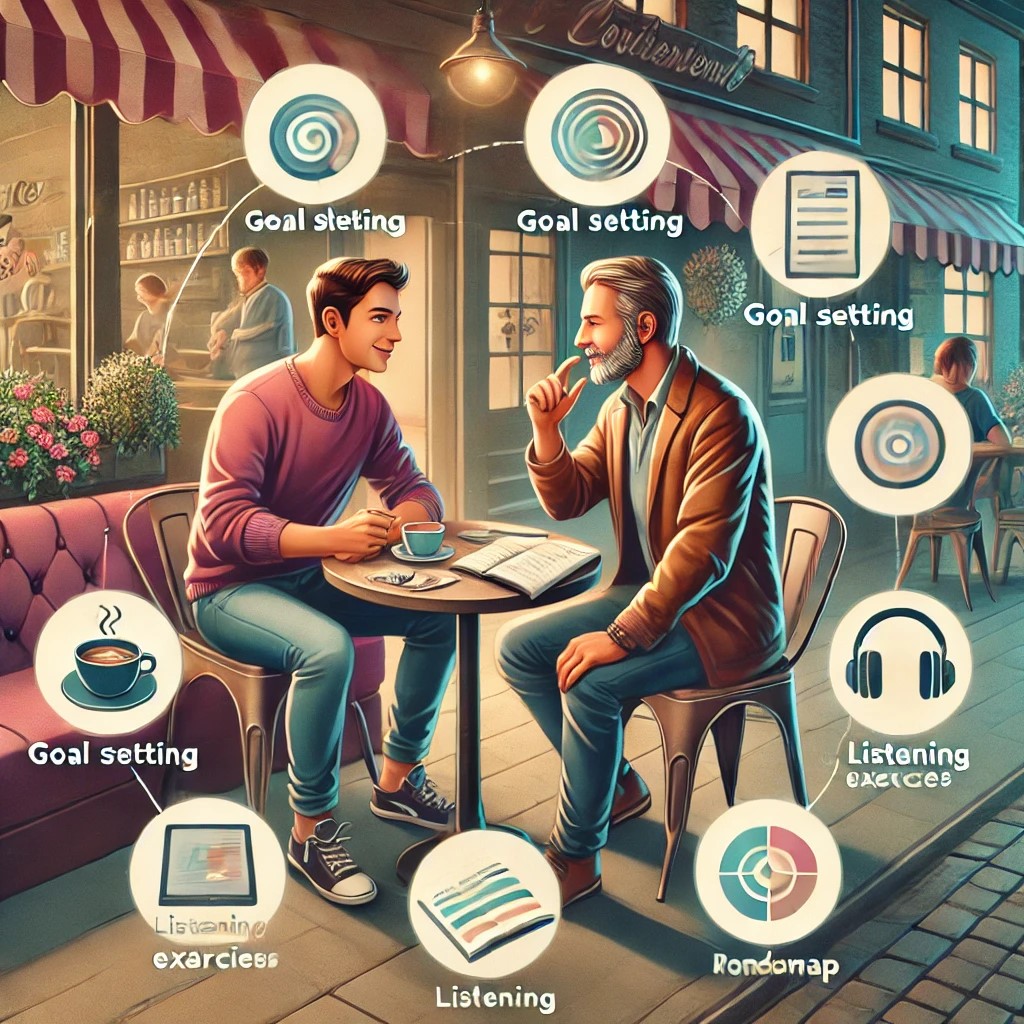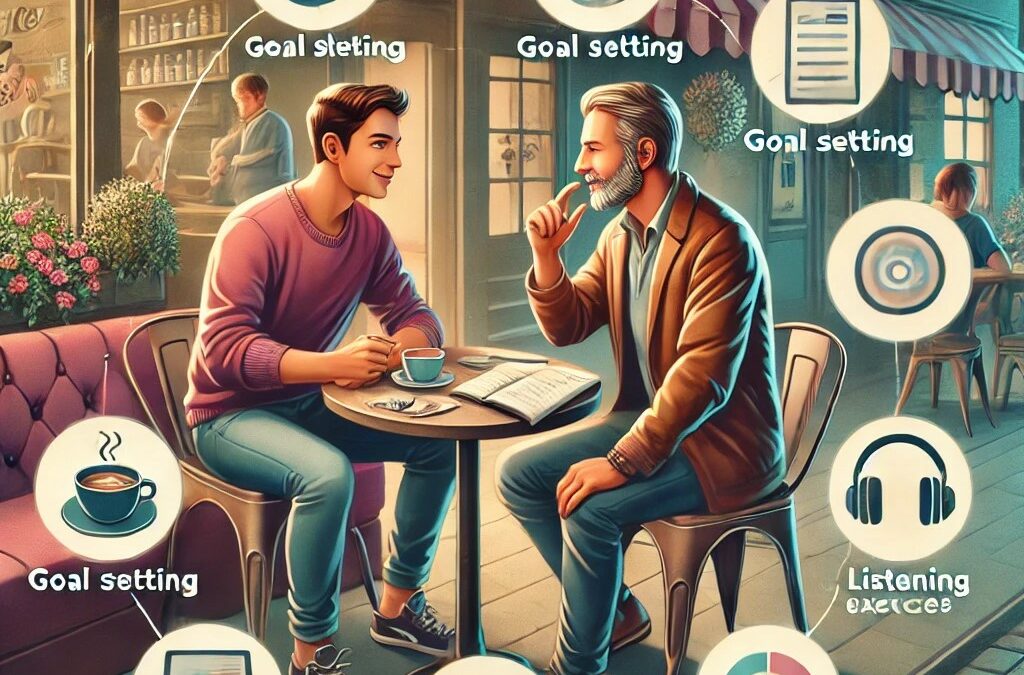
Last time I started looking at the skills you want to assess under the listening comprehension . Now on to speaking skills:
- Range: What kinds of topics can the learner speak about? What domains of life are out of his/her range? How deeply can he/she talk about a given topic? Test this by asking questions about a broad and gradually more difficult range of topics.
- Precision: Does the learner use the right words at the right time? Does he/she choose phrases and idioms and technical terms that fit with the context, or are they sometimes a bit imprecise, misleading, unnatural or unclear? This will vary for each learner depending on the topic he or she is speaking about.
- Discourse: How long is the learner’s speech on any given topic? Can he/she speak in only isolated words, or in sentences, paragraphs, or full “arguments”? Can he/she use logical relations and discourse markers (e.g. “so,” “therefore,” “anyways,”) effectively? Is his/her speech not only clear on the sentence level, but also on the paragraph (and above) level?
- Accuracy: What chronic grammatical mistakes does the learner make? Can he/she effectively conjugate verbs and put sentences together in the right order? Do nouns and adjectives agree? These types of mistakes, while still distracting, are not nearly as important as other factors.
- Fluency: How quickly and fluidly does the learner speak? Does he/she grope for words a lot? This could also include the ability to put together complex words (like the ones I mentioned in “Complex Structures” above) without stumbling or stopping.
- Sociolinguistic issues: Can the learner make cultural references? Can he/she develop a discourse which is put together in a natural, understandable way? Does he/she use common non-verbal gestures? Is intonation helpful or distracting?
- Clarity: This is another new skill I’m thinking about adding. It relates to “Precision” and “Discourse”, but may be worth separating out as a separate skill. How understandable is the learner’s speech on given topics? How well can he/she use the right vocabulary at the right time in order to be clear? How often does he/she have to repeat what’s been said?
[pullquote]Does the learner use the right words at the right time? [/pullquote]
And finally, conversational skills:
- Non-verbals: Can the learner use and understand common non-verbal gestures? Are they a help or hindrance to the conversation?
- Feedback: Can the learner keep the conversation flowing by giving appropriate feedback? Can he/she interject short words and phrases (as appropriate) to show that he/she is understanding what is being said? Are their long pauses in conversations? Does the conversation flow naturally, and in a way a conversation between two native speakers normally would?
- Negotiation of Meaning: Can the speaker figure out what something new means by asking questions and getting feedback? Is he/she able and willing to find out the meaning of new words and phrases without using translation? Can he/she re-explain something he/she has said which isn’t comprehensible?
So there you have it: sixteen different skills, fitting into three major categories, to evaluate when you do an assessment. Other lists may break things down differently, but hopefully this model will give you an idea of the kinds of things you want to look for as you grow in a new language.
Next time we’ll look at how you actually go about assessing your language proficiency.
by Chris

